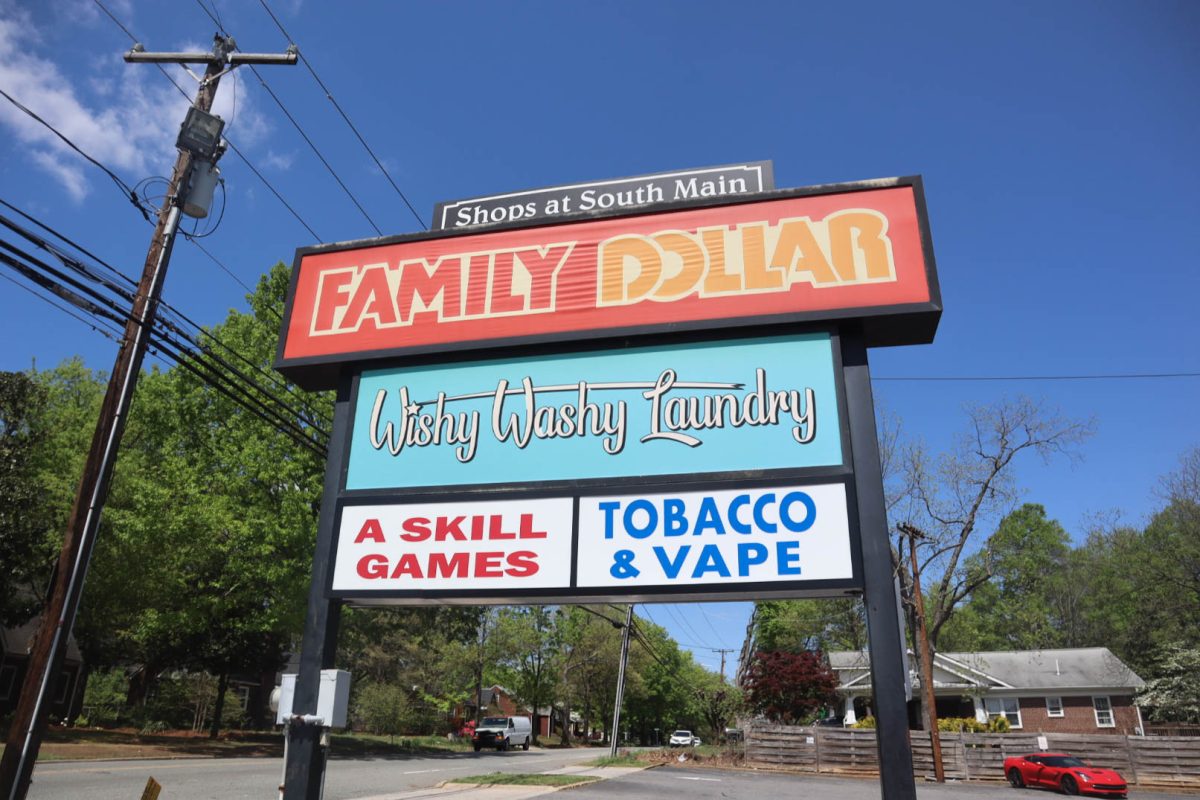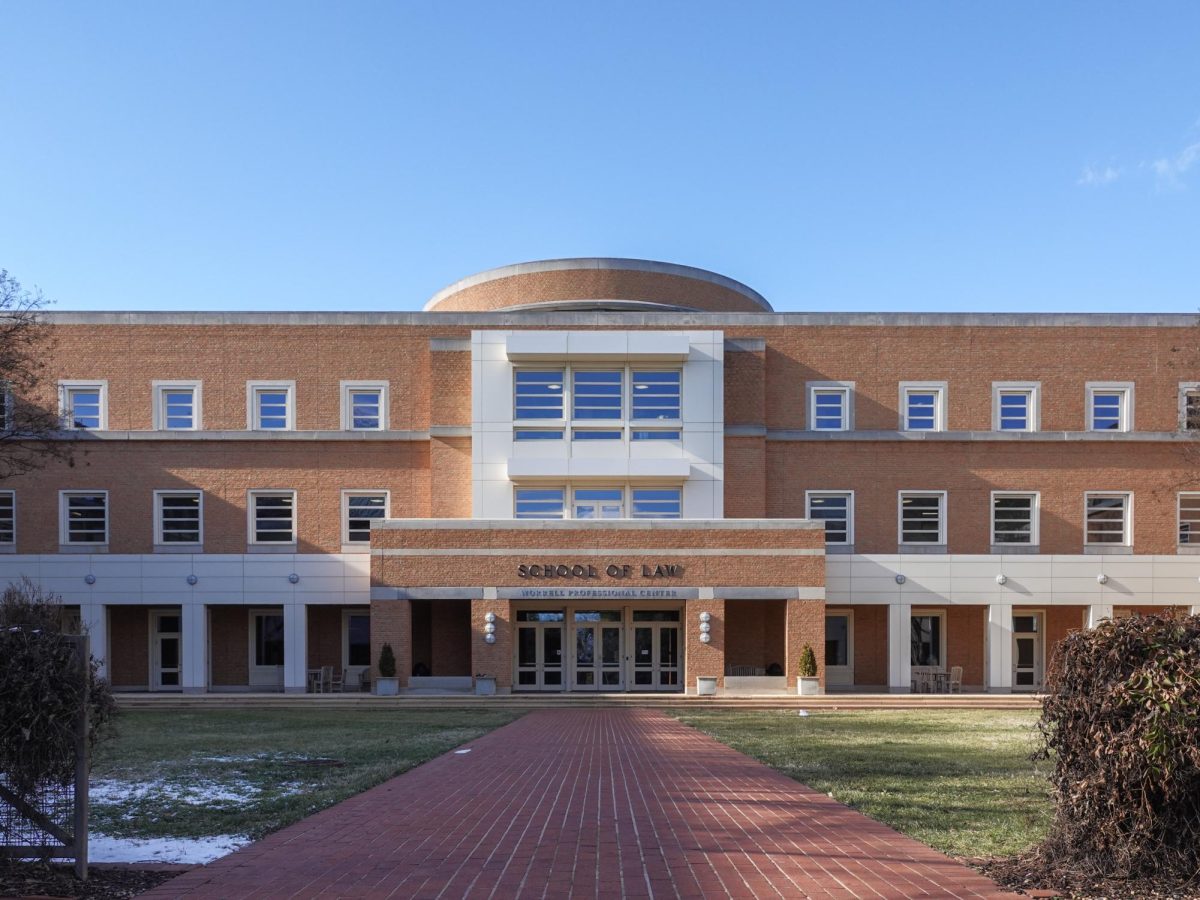“Can I pay for your laundry tonight?”
This question is a selfless one that reflects kindness and generosity. It is a rare question, and strangers may meet it with hesitation and suspicion. However, this question carries deep significance, according to The Reverend James D. Franklin III, Wake Forest’s Episcopal campus and young adult minister. It is the Wake Forest’s Episcopal Student Fellowship’s newest approach to giving back to the city of Winston-Salem.
On Tuesday, March 18, members of the Wake Forest Episcopal Student Fellowship (ESF) gathered in the Wishy-Washy Laundry in South Winston-Salem with smiles on their faces and their arms filled with pizza boxes. Whenever a customer entered the laundromat, an ESF member offered them dinner and asked the question: “Can I pay for your laundry tonight?”
ESF organizes these monthly events in conjunction with Laundry Love, a movement that partners with groups, schools and laundromats to provide free laundry services for low-income or no-income people.
Laundry Love currently has more than 287 chapters across the country. The national organization provides free laundry detergent, digital resources and other support to these groups. Since its founding in 2003, Laundry Love has served more than 3 million people and completed more than 3.5 million loads of laundry.
The Reverend James D. Franklin III says that the central idea of Laundry Love is dignity.
“Everyone deserves the dignity of clean clothes,” Franklin said. “When they use that language, it takes me to a [question] in [the Episcopal Church’s] baptismal covenant: will you strive for justice and peace in the world, respecting the dignity of every human being?
Franklin continued: “And the answer is, I will, with God’s help. We all have a right to just dignity.”
Franklin coordinates Laundry Love projects each month. He was present at Tuesday’s event, accompanied by a few ESF student members and volunteers from St. Paul’s and St. Anne’s Episcopal Churches.
Some laundromat customers responded with hesitation, but Franklin quickly put them at ease, saying, “There’s no catch, there’s no strings attached.”
According to Franklin, the most impactful moments at Laundry Love events are during “downtime,” while people wait between loads or fold their clothes. Franklin takes this opportunity to connect with patrons. He gets to know regular customers better and introduces himself to those he hasn’t met yet.
“This is central to building community,” Franklin said. “We ask ‘How’s your day going?’ and that just turns into conversations.”
Ella Jones, a freshman at Wake Forest and member of ESF, has attended Laundry Love for the past four months. She was eager to learn more about the project when Franklin first proposed the partnership during a group ESF dinner.
“Coming into Wake Forest, I was intentional about wanting groups that would push me beyond the notorious ‘bubble’ of college […]. My most favorite experience at ESF so far has without a doubt been Laundry Love,” Jones said.
Lillie Sutton, a senior and member of ESF’s leadership team, agreed that Laundry Love fosters community.
“I remember helping a woman transfer her clothes from the washer to the dryer. She told me excitedly about how she had a job interview the next day, pointing out which of her clothes she was going to wear to her meeting,” Sutton said. “It was incredible to see how this simple act of helping someone instilled so much confidence and joy.”
While ESF believes its work with Laundry Love is already positively impacting the Winston-Salem community, Franklin hopes to see broader student involvement beyond ESF members. He wants to see Laundry Love “catch fire” and have repeated events in multiple laundromats throughout the city in the future.
“There’s this theologian from a long time ago, who said that compassion, mercy and real social change happens when we introduce the world’s ‘haves’ with the ‘have-nots, ’” Franklin said. “Wake Forest is a place of abundance. I would love to see the University make a more concerted effort to raise social mobility, instead of just raising some economic standard for Winston-Salem that just benefits more ‘haves.’”
Jones also recognizes the compatibility between Wake Forest’s motto of pro humanitate and Laundry Love’s emphasis on empathy and neighborhood friendliness. She believes that pro humanitate is best practiced when engaging with people and places outside of the University, and plans to attend Laundry Love diligently over her next few college years.
“Things like Laundry Love are imperative to this claim [of Pro Humanitate] because they push us to harness the uber-intelligence that permeates on campus for loving a global community vastly different than Wake Forest, but not all that different from you and me as human beings,” Jones said.










